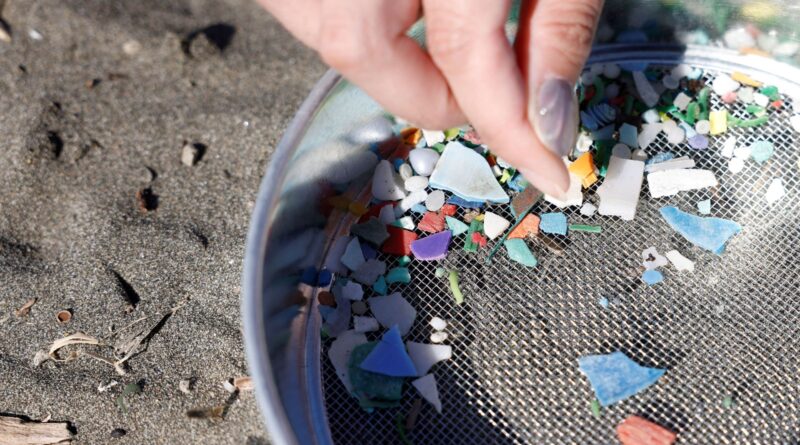A strong partnership can end plastic pollution and save lives
Two years ago, world leaders pledged to create an agreement by the end of 2024 that would lay the groundwork for ending plastic pollution.
The terms used at the time to describe the agreement, such as “international”, “legally binding” and “address the full lifecycle of plastics”, suggest a strong global agreement with teeth, which raised the hope that countries are ready and united to do their best. .
Since then, and after four divisive negotiations due to persistent opposition from a minority of oil-producing countries, the language governing the scope and mandate of this treaty has been reduced, with strong measures in danger of being replaced by other such weak measures. as “state-planned”, “voluntary”, and “waste management” (as opposed to the complete lifecycle of plastic).
This week, as we head into the fifth and final round of negotiations, skepticism about whether negotiators will reach a strong global deal is understandable. However, we should not give in to those who want to continue business as usual. Governments must stand firm and unite to prevent irreparable loss for all, knowing they have the support of the rest of the world.
We’ve done this before – the Montreal Protocol on substances that deplete the ozone provides us with a shining example of how countries can come together to agree on the same global rules that brought us back to the brink. We must do this again and we must do it now as plastic pollution is rapidly increasing threats to nature and humanity.
Failure is not an option when there is so much evidence of the widespread harm of plastic. Two years ago, shortly after the world agreed to create the treaty, researchers detected for the first time microplastics in human milk, which may be toxic to our children. .
The most vulnerable among us need our support – not because they can’t help themselves, but because individual actions are not enough to tackle the problem without the systemic changes needed to end plastic pollution. This is where our leaders need to step up and create the strong global alliance that the world not only wants but urgently needs.
The reasons why we must act now are clear, and so are the solutions that an effective treaty must include.
One, a strong alliance will save lives. Research shows that the current amount of plastic pollution is set to increase rapidly, and is already damaging ecosystems and wildlife populations, causing climate change and infiltrating the bodies of us with the air we breathe and the food and water we consume.
To protect human life and nature from the worst effects of plastic pollution, we need a strong alliance that bans the most dangerous plastic products and chemicals. In addition, a strong alliance is one that establishes global product design requirements so that we can ensure that the plastics we use are safe and can be properly recycled.
Second, a strong alliance will help us tackle the current inequalities created and exacerbated by plastic pollution. The world is full of plastic pollution, yet its effects are not felt equally. In low-income countries, the lifetime cost of plastic is 10 times higher than in rich countries. Even in wealthy countries, the toll of plastic pollution can be dire and even fatal for some, as seen in Cancer Alley, the United States, an economically depressed area that accounts for a quarter of the chemical’s production. of petroleum in the country. Decades of plastic, petrochemical and industrial pollution have led to this area having the highest cancer rate in the US.
To fight the inequality that cripples the plastic value chain, a strong alliance must have strong financial mechanisms to support positive change, especially in the Global South. This means aligning the flow of private and public funds with treaty commitments, while mobilizing and distributing additional funding sources – especially for implementation in developing countries – to reduce plastic pollution. Moreover, an alliance like this, through the methods we have just discussed, will be able to stop the dangerous financial flows that contribute to the crisis.
Ultimately, a strong partnership is the only way to deliver on the goal of ending plastic pollution. From scientists and governments to citizens and businesses, there is widespread agreement that the world urgently needs a binding global treaty. This type of partnership will raise standards, level the playing field for all, and provide a mandate to move from destructive business-as-usual models to meaningful change.
Sustaining a sustainable and impactful global operation requires courage and leadership to forge a path away from harmful and entrenched practices. Our leaders must take responsibility and be accountable for the promise they made two years ago to deliver the strong alliance we need to put our planet on the road to recovery.
The views expressed in this article are those of the author and do not necessarily reflect the editorial position of Al Jazeera.
#strong #partnership #plastic #pollution #save #lives
